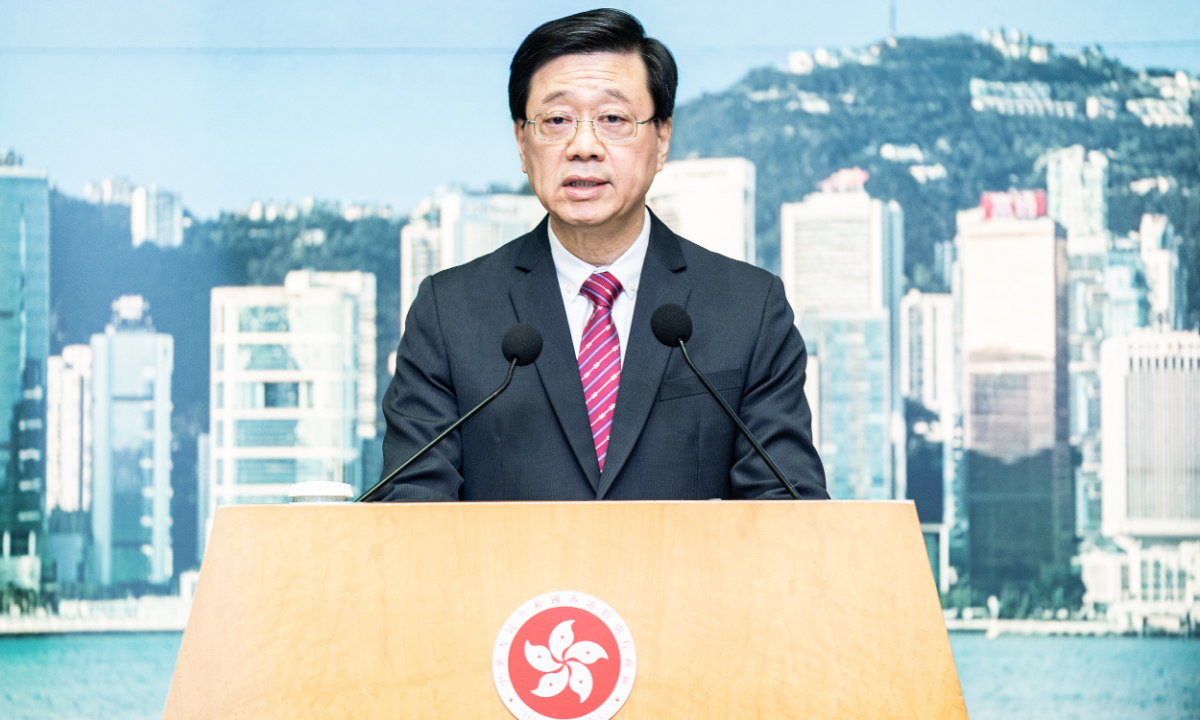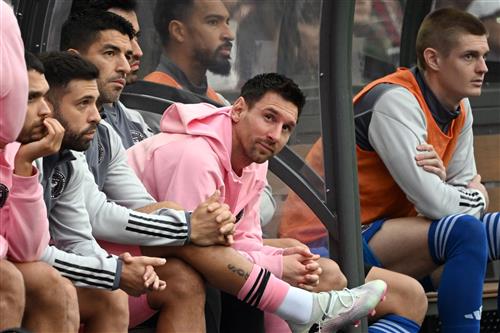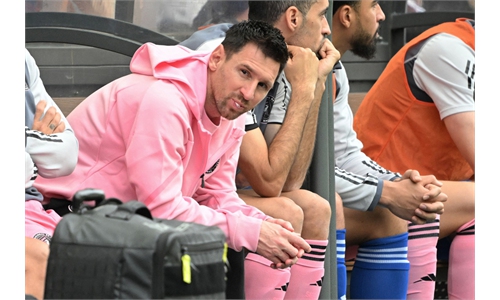
John Lee Ka-chiu, chief executive of the Hong Kong Special Administrative Region. Photo: CFP
John Lee, the chief executive of the Hong Kong Special Administrative Region (HKSAR), voiced support for fans' demands for refunds after soccer legend Lionel Messi's disappointing no-show in a match in Hong Kong on Sunday.
Lee said on Tuesday that the event organizer, Tatler Asia, had failed to meet public expectations, adding that their performance is closely linked to Hong Kong's image and reputation, Hong Kong media outlet RTHK reported.
Tatler on Monday announced that it would not claim the HK$16 million (US$2 million) grant which was previously approved by the HKSAR government. Nonetheless, it still has a social responsibility to explain what went wrong, Lee said.
The atmosphere had been lifted high for Messi and the match between his club Inter Miami and the Hong Kong team on Sunday. A fully-packed stadium with 40,000 people who paid high prices for tickets was excited to watch the star play in the much-hyped game. Instead, they only saw an impassive Messi dressed in casual attire sit on the bench for 90 minutes, even skipping a handshake with Lee, the award presenter post-match.
The government said earlier that when it realized Messi wouldn't play at all, it tried but failed to get him to at least address fans or lift the trophy after the game.
"I think at least 80-90 percent of the fans in the stadium came to watch this game because of Messi," a fan surnamed Wang, who traveled from Guangdong to watch the match, told the Global Times. "As a fan, what angers me the most is not that Messi couldn't play, but the feeling of being deceived and disrespected."
"The fans who attended the event should at least receive partial compensation because the main promotion by the organizers was not fulfilled," Wang said.
Refunds are also a unanimous demand from many fans. As the match approached its end and fans realized that Messi was not prepared to play, the stadium was filled with boos and cries for a refund. After the match ended, many fans continued to express this demand on the internet.
Saying he is extremely disappointed as well, Lee also voiced support for the fans and urged organizers to respond to fans' demands for refunds.
The chief executive also noted that the fiasco has left officials with a better understanding of what needs to be included in contracts for future mega events. "We'll ensure in future that the right protection of Hong Kong's interest is ensured, such as having a contingency plan well prepared ahead of the actual event," Lee said.
As for some foreign media viewing the anger of Hong Kong people as a sign of long-term repression and anxiety about the city's attractiveness, experts say that this is not the case.
"The anger from Hong Kong government and its people is completely justified and very reasonable," Tian Feilong, a professor at Beihang University, told the Global Times on Tuesday. "The incident reflects that Hong Kong has always been a place that strictly adheres to and values the spirit of contracts. It is normal to be angry when encountering things that violate the spirit of a contract."
This reaction can be seen as partly related to the anxiety of the Hong Kong government about the recovery of the tourism industry, but it is premature to conclude whether Hong Kong has lost its tourism appeal, Tian said, as Hong Kong still has its unique appeal and many positive policies, and there is still great potential for future recovery.
On Tuesday, Messi showed up at a news conference in Tokyo, ahead of Inter Miami's another friendly match against Japan's Vissel Kobe. Speaking of the major letdown in Hong Kong, he said, "It was bad luck that I couldn't play in Hong Kong," adding that he had suffered a groin injury and that the "discomfort continued and it was very difficult for me to play."
Messi said he hoped to visit Hong Kong again and play next time.
On Wednesday, Messi fully participated in the team's training and appeared to be "full of energy," according to the organizers of the match in Japan.


